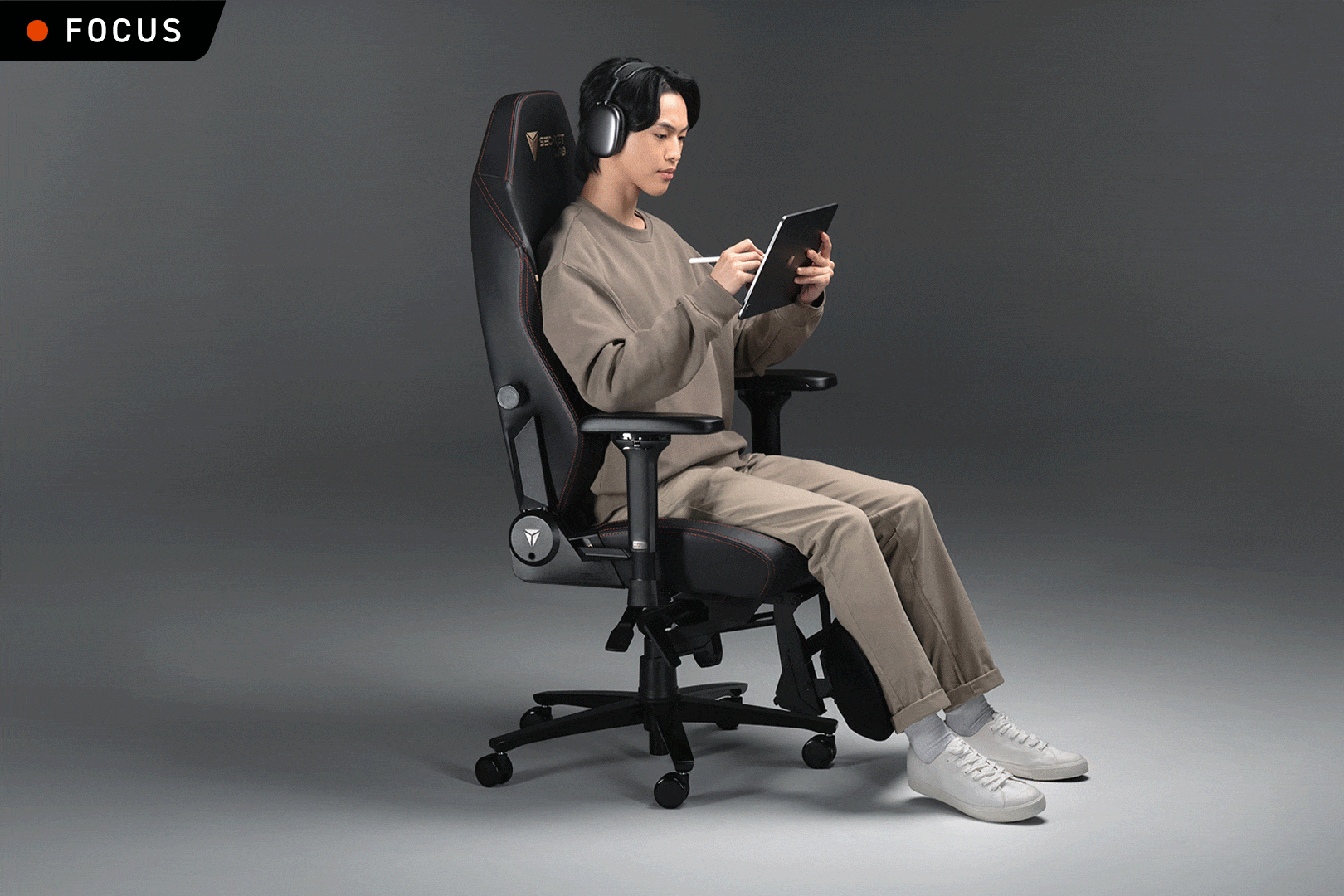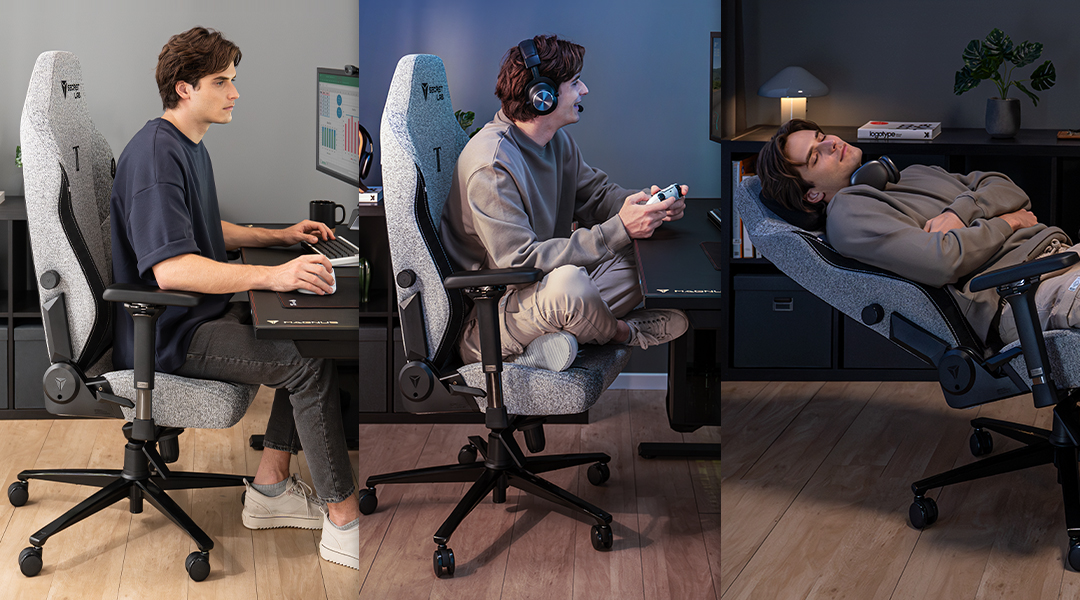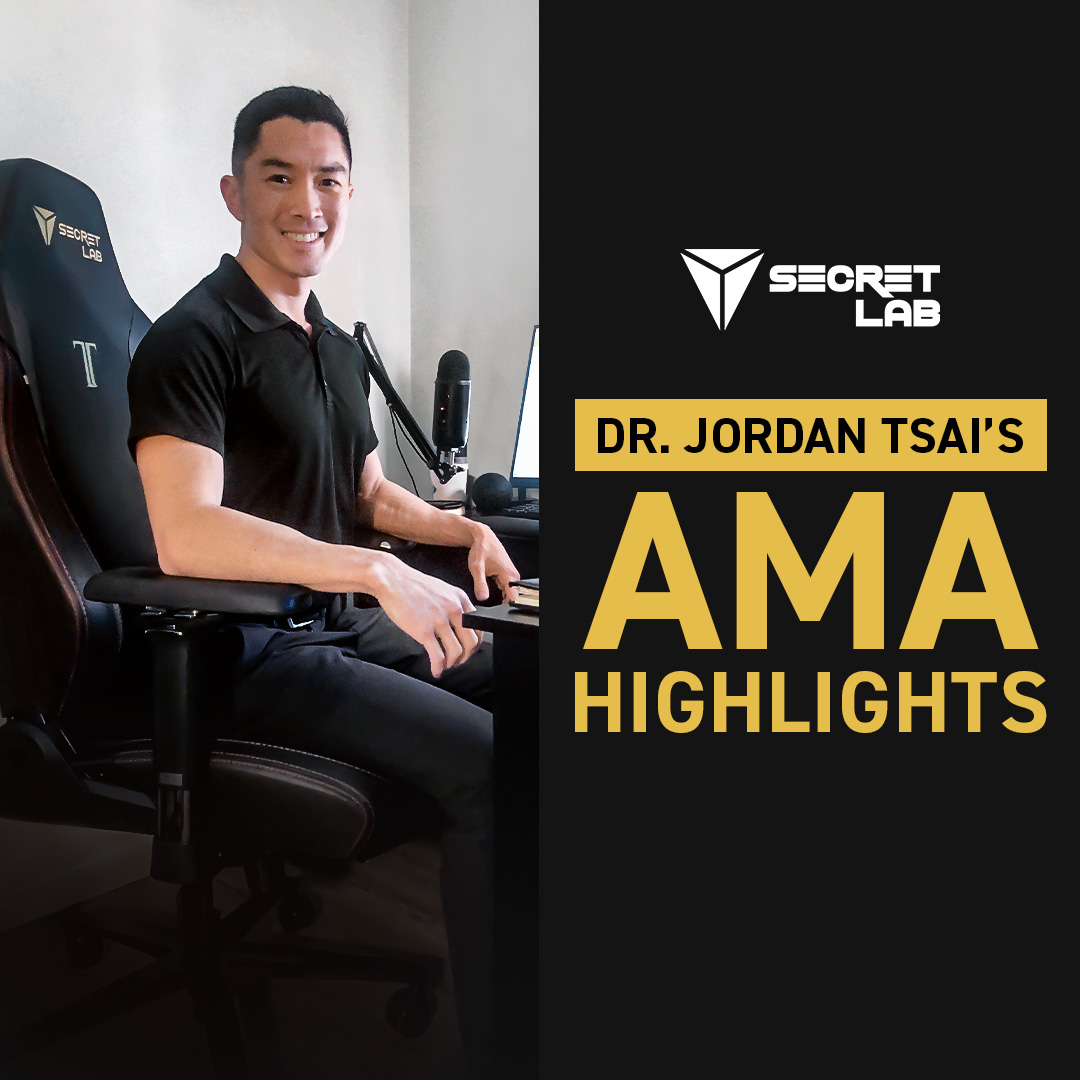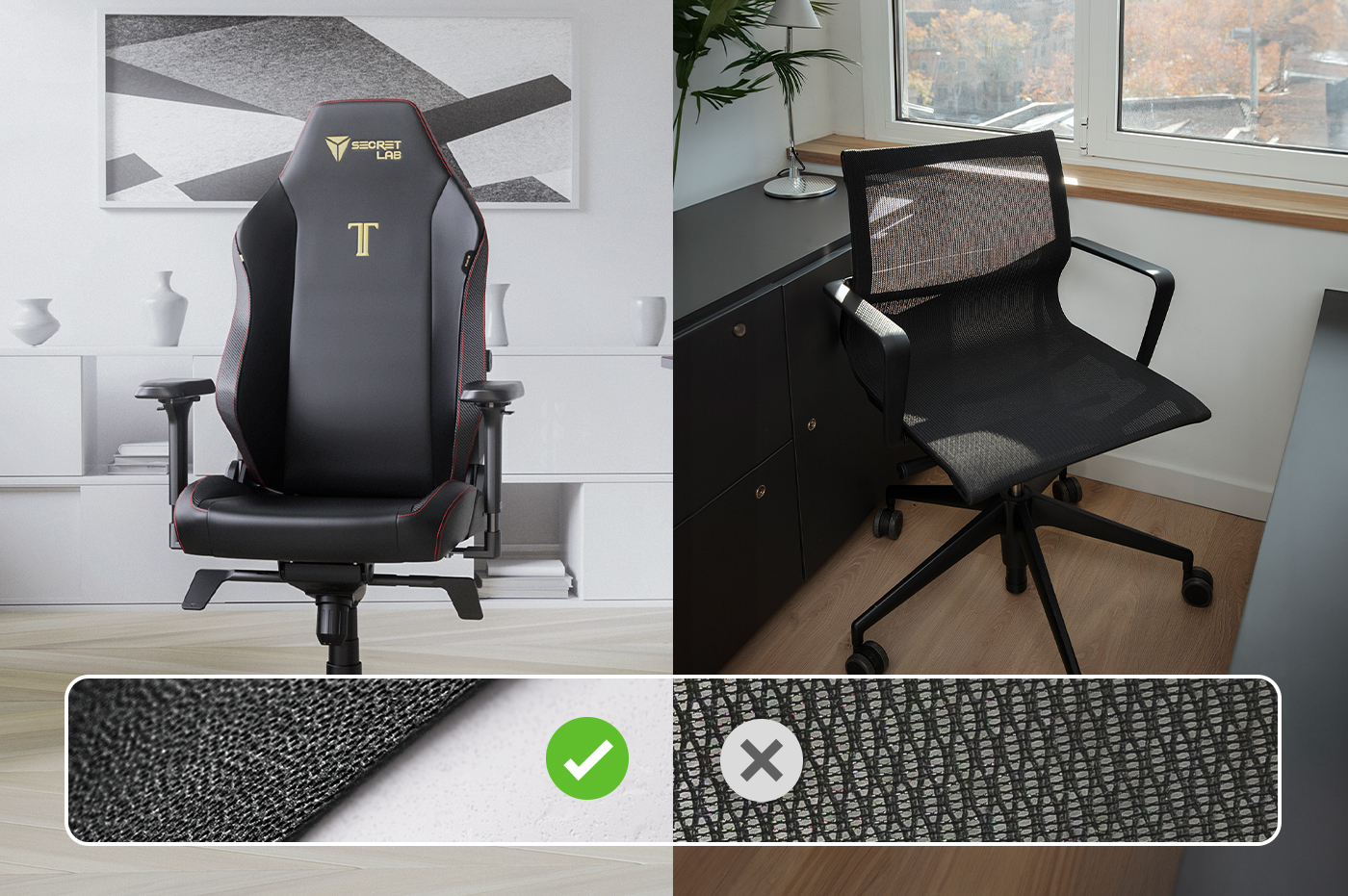
Foam and mesh are two of the most popular materials in ergonomic chairs today. So researchers at the University of California, Berkeley set out to investigate which one performs better, in a study¹ pitting the Secretlab TITAN Evo — a foam chair — against a mesh counterpart.
Look at any office chair today. There’s a good chance it’s made from mesh, favored for its breathability. But the idea that mesh is superior to foam may turn out to be one of the biggest ergonomic myths today.
Foam is associated with more support for long bouts of sitting

Ergonomic specialists from the University of California, Berkeley examined the impact of mesh vs foam as a seat material on comfort, subjective performance, and seat pressure distribution in an 8-hour blind test between the Secretlab TITAN Evo and a premium mesh chair.
While no significant differences in pain, comfort, fatigue, or subjective performance were found between chairs, trends indicated that performance in computer-based tasks improved when using the foam chairs, compared to mesh.
“The rise of hybrid work has prompted everyday workers to invest in their home office furniture. The search for a good chair often leads to a choice between mesh and foam chairs,” said Melissa Afterman MS, CPE of the UC Human Factors Ergonomics Lab at the University of California, Berkeley & San Francisco. “People are often drawn to mesh chairs, but our findings suggest that foam seats shouldn’t categorically be underestimated as a seat material suitable for long bouts of sitting.”
Notably, trends from the study findings indicated that the Secretlab foam chair felt more supportive and had lower seat pan pressure measures at the end of the 3-hour test period, demonstrating positive qualities for foam seats during extended periods of sitting.
Why soft doesn’t equate to greater comfort

Another common misconception is the association of comfort with softer surfaces. The material your seat base is constructed from should actually be firmer for better support. According to Dr. Stuart McGill, Distinguished Professor Emeritus at the University of Waterloo and a leading expert in the mechanisms of back pain, too-soft chairs “lack sufficient support to allow the stress migrations and distributions critical to achieving comfort and injury resilience.”²
Dr. McGill’s work, drawing from over 30 years of experience investigating the mechanisms of stress migration, highlights how weight typically pools at the heaviest point of cushier seats. This leads to uneven pressure distribution and causes the muscles in your lower back and thighs to work even harder to support your posture, quickly resulting in fatigue and pain.
Well-engineered, medium-firm foam can outperform mesh

But not all foam gaming chairs are created equal. Foam must be engineered with just the right consistency and firmness to relieve pressure on soft tissues such as your buttocks and thighs.
Our patent-pending high-density foam is the result of countless hours of R&D and hundreds of prototypes. Its medium-firm formulation has been tweaked over and over again to maximize the material’s unique properties, allowing it to deliver better long-term support than mesh.
Our cold-cure foam has also been tested with an advanced array of pressure mapping sensors, enabling our engineers to optimize its consistency for even pressure distribution. Cutting-edge manufacturing processes make it possible to cure the foam at room temperature, as compared to regular foam that is typically injected into a mold and cured in an oven at 100 °C. The lower temperature pushes the cells closer together, creating an even more uniform consistency.
“Tissue loads must be migrated from tissue to tissue to minimize the risk of any single tissue accumulating microtrauma,” said Dr. McGill in his study on stress migration. “Secretlab TITAN Evo’s foam seat base helps to distribute pressure to the parts of the body designed for bearing weight.”
Working with experts to create a cohesive ergonomic experience
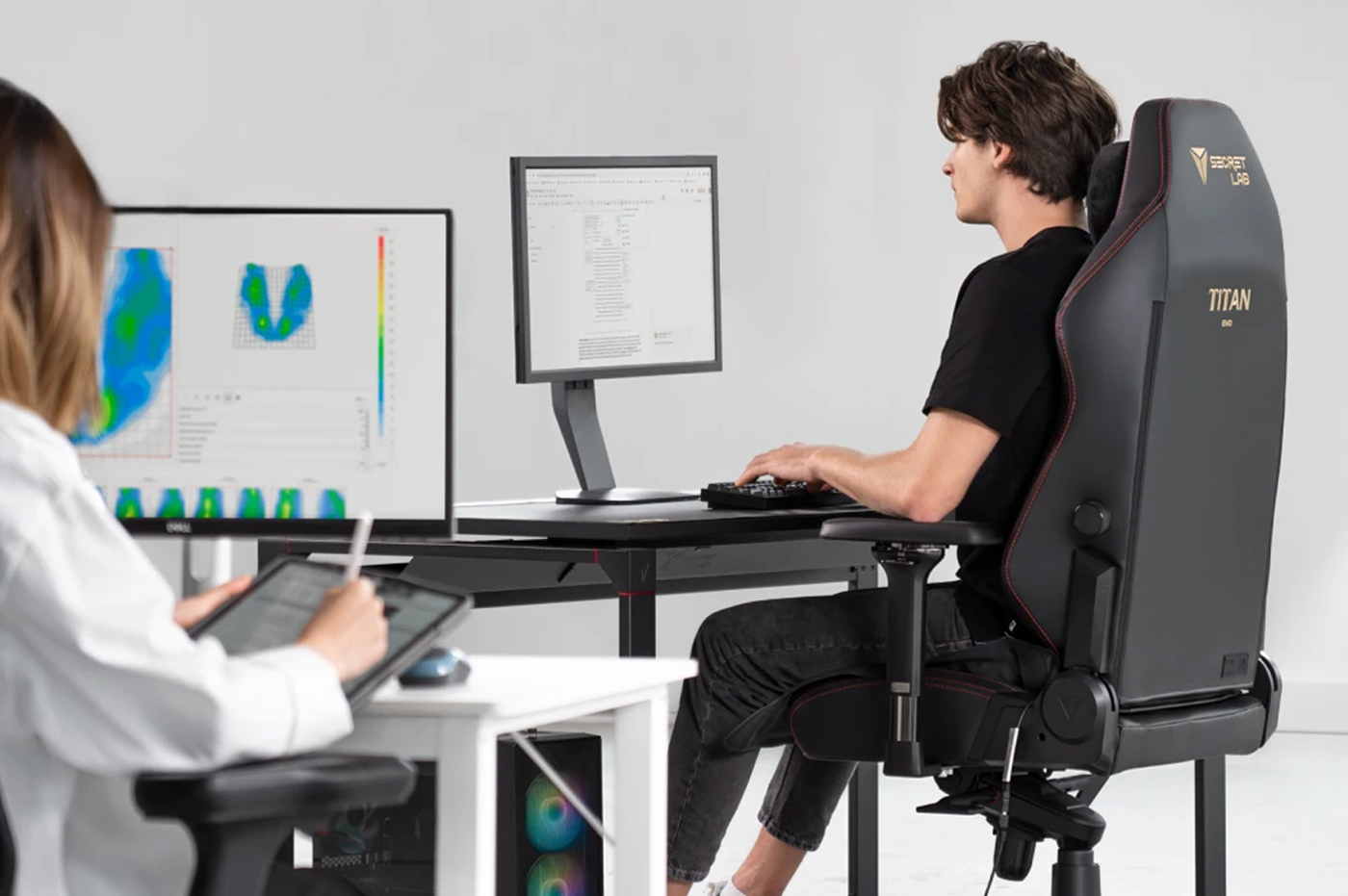
When you spend well over 12 hours a day seated — working, taking calls, watching videos, gaming, and more — every aspect of your ergonomic chair must work together seamlessly to support natural movement.
Working closely with experts from our independent Ergonomics Advisory Board (EAB), we leveraged their years of research into the intricacies of biomechanics, orthopedics, and injury prevention to refine every detail of the Secretlab TITAN Evo. TITAN Evo’s ergonomic performance is certified and recognized by leading industry bodies like United States Ergonomics to provide measurable ergonomic benefits to the user by improving comfort and fit and minimizing the risk factors that may cause injuries.
From its pebble seat base that guides users into the optimal position for more even pressure distribution to its dynamic lumbar support that flexes to the spine as you move — every element of the chair is engineered to keep you comfortably seated as you switch between activities throughout your day.
¹Afterman, M., Houghton, F., Honan, M., Barr, A., & Harris-Adamson, C. (2022). Impact of seat material on comfort, preference and performance during computer-based tasks over a prolonged bout of sitting.
²McGill, S. (2023) The science of stress: How to reduce back pain while sitting.

